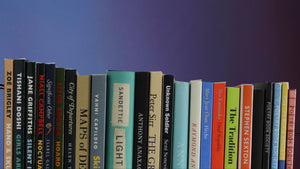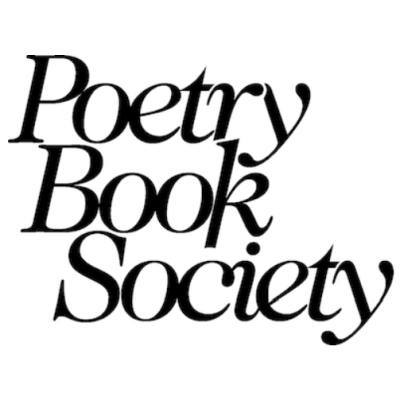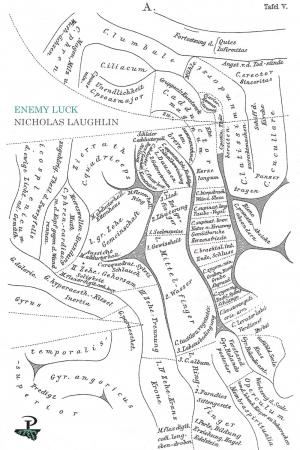Enemy Luck by Nicholas Laughlin
In using an epigraph from the 18th-century poet Christopher Smart, for years incarcerated in the madhouse, Nicholas Laughlin stakes his case for a poetics that is located between a radical innocence of risk and a knowing familiarity with the histories of poetic forms. On the one hand, knowing that “The less you know, the less mistaken”, Laughlin’s poetry has room for the accidental, the punning slip and the puzzlingly axiomatic (“You bruise a grammar before it bruises you.”) Like the brilliant Jamaican poet Anthony McNeill with his “mutants” (retained typos), for Laughlin “Errors are not accidents”.
On the other hand, Enemy Luck is almost an encyclopaedia of ingenious devices and forms: cut-outs that hint at kidnapping threats; a poem that resembles the often mystifying chapter summaries of the 19th-century novel (in which…); visits to geographical territories mutated from a Wilson Harris novel; found fragments; lengthier extracts from a variety of sources, from Strabo to Oliver Goldsmith, whose meaning is changed by their new contexts; translations where the original is absorbed into a characteristic Laughlin voice; an index to some fugitive travel narrative that invites the reader to construct their own story; seemingly absurd narratives that make perfectly good sense; seemingly realistic narratives that mystify like an Escher building; a cast of personas from Cousin Hermes to King Q.
Here is a collection that invites us to active reading, to picking up clues, to inserting ourselves into the dialogue between the poems. Above all, Nicholas Laughlin challenges us to think about the expectations and accumulated experiences we bring to the shaping influence of a variety of literary forms – and helps us to deconstruct them.

MEMBERS ENJOY 25% OFF ALL POETRY BOOKS

Join the Poetry Book Society for 25% off all books
Join the Poetry Book Society for 25% off all books

